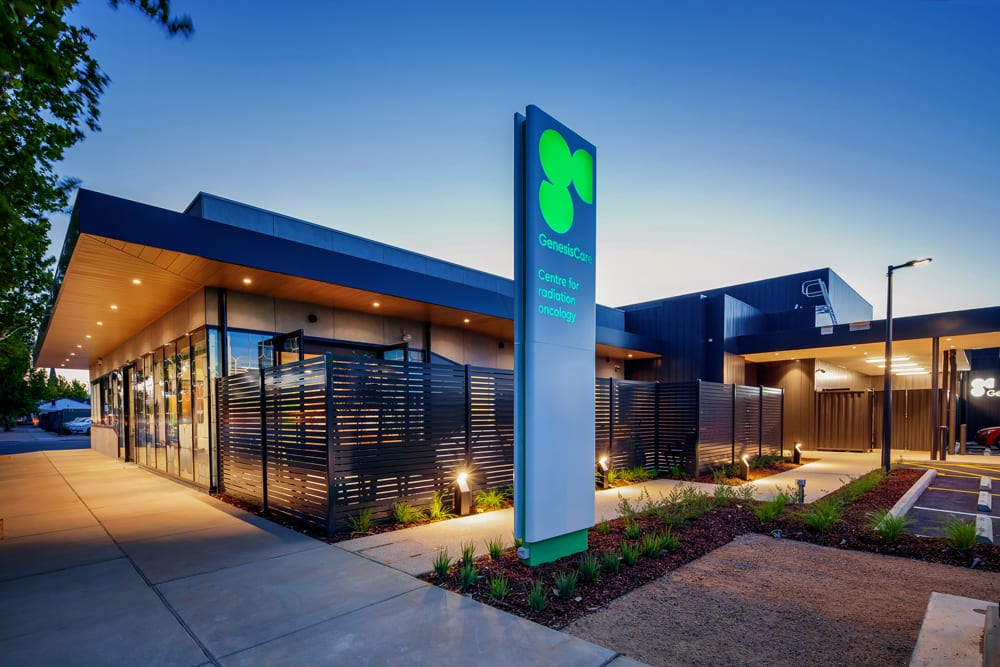Research finds black men are unaware of their greater risk of prostate cancer
Less than a quarter are aware of the higher risk that comes with black ethnicity
- 1 in 4 black men will be diagnosed with prostate cancer compared to 1 in 8 men of other ethnicities¹ – but less than a quarter (24%) of black men are aware of the higher risk that comes with black ethnicity
- Prostate cancer is one of the most common cancers in men, yet over three quarters (76%) of all men are unaware of the potential signs – with a quarter (25%) not able to name any symptoms
- Conversations could be crucial to ensuring the best possible outcome – those who speak about cancer with friends or family are four times as likely to recognise the symptoms and more than twice as likely to receive an early cancer diagnosis²
- However, when it comes to prostate cancer, these conversations aren’t easy – with nearly a fifth (19%) feeling too uncomfortable to talk to their family or friends about it
- GenesisCare and Prostate Cancer Research commissioned the research and have enlisted the support of former Olympian and Prostate Cancer campaigner Linford Christie to increase awareness of the risk, and of signs and symptoms, encouraging men to visit their GP if they have concerns
Statistics show that one in four black men will be diagnosed with prostate cancer compared to one in eight men of other ethnicities. Despite this, just under a quarter (24%) of black men are aware of the higher risks.
Prostate cancer is the most commonly diagnosed cancer for men in the UK, yet over three quarters of all men (76%) are unaware of all the potential signs – with a quarter (25%) completely unaware of any symptoms.
New research from leading private cancer care provider, GenesisCare and charity, Prostate Cancer Research, has found that conversations could be crucial – and potentially lifesaving. Those who speak about cancer with friends or family are four times as likely to recognise the symptoms (31% vs 8%) and more than twice as likely to receive an early cancer diagnosis (83% vs 43%).
But conversations aren’t easy when it comes to prostate cancer, with two in ten feeling too uncomfortable to talk to their family or friends about it (21%). The most common barriers to having a conversation about prostate cancer are embarrassment due to the nature of the symptoms (46%) and not wanting people to worry about them (16%).
The research revealed that a third (30%) of black men who struggle to talk about prostate problems would be more comfortable opening up if they heard others talking about it more often. Other things which those surveyed stated would help spark a conversation among black men include guidance from a medical professional on how to talk about it (38%) and seeing other people talk about it more often on TV (27%).
Of those that stated they struggle to have conversations themselves, three quarters (76%) said if a friend were to be diagnosed with any cancer, they would want that person to feel they could talk to them about it. The most common reasons for this being that they’d like to offer support (62%), so that they can reassure them that they have someone to talk to (57%) and so they know they could ask for help if they need it (55%).
These conversations are more important than ever as the pandemic has further impacted the number of men visiting their GP, in particular, black men. A third of black men say they were deterred from getting potential symptoms checked as they fear they may contract Coronavirus while visiting medical facilities (32%, vs 9% of white men).
Dr Philip Camilleri, Consultant Clinical Oncologist at GenesisCare added: “The more we invest in understanding and raising awareness of this issue, the better the patient outcomes will be in the future. It’s not surprising to me that people aren’t aware of the symptoms of prostate cancer – we hope this will help men to identify what they are so they can seek help from a medical professional if they spot any telling signs.”
Naomi Elster at Prostate Cancer Research added: “This research highlights how few people are aware of the higher risk that comes with black ethnicity. This is not a problem for only the black community to solve. Much more research needs to be done to understand why black men are at higher risk, how they can be treated most effectively and what the real-life impacts of cancer are in that community. This year, we will specifically invest in research which aims to improve the situation for black men.”
Linford Christie, OBE, Olympian, legendary sprinter and prostate cancer campaigner added: “Most people don’t want to think about getting older and the health implications that it brings – but being aware of the symptoms of something like prostate cancer so you can act quickly could save a life.
“I want to normalise conversations around prostate cancer. We’ve seen from the research the positive impact that these conversations can have when it comes to recognising symptoms and getting tested as soon as possible.”
Prostate cancer symptoms can include changes in urination for example difficulty when urinating or an increase in the frequency of urination. Some men may notice blood in their urine or semen.
These symptoms may be caused by other non-cancerous conditions but if you experience any of these symptoms or have any concerns make an appointment with your doctor as soon as possible.
- https://bmcmedicine.biomedcentral.com/track/pdf/10.1186/s12916-015-0405-5.pdf
- GenesisCare and Prostate Cancer Research, UK Research June 2021 in conjunction with OnePoll




